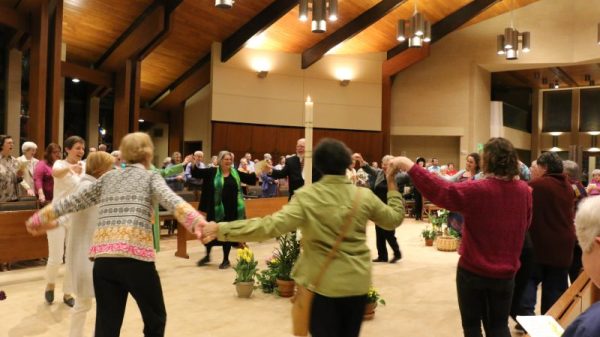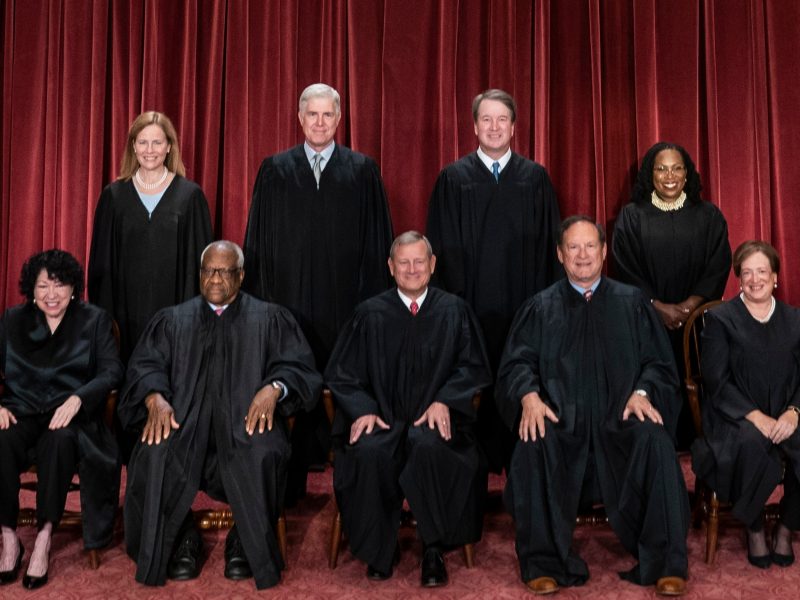The Supreme Court said Friday it will consider whether state and local officials can punish homeless individuals for camping and sleeping in public spaces when shelter beds are unavailable.
The justices will review a lower court decision that declared it unconstitutional to enforce anti-camping laws against homeless individuals when they have nowhere else to sleep.
The U.S. Court of Appeals for the 9th Circuit, which covers Western states, including California, Oregon and Washington, first held in 2018 that the Eighth Amendment’s protection against cruel and unusual punishment prohibits cities from criminalizing public camping when shelter is unavailable.
The city of Grants Pass, Ore., asked the justices to overturn a similar recent decision involving civil fines and warned that the ruling would paralyze cities across the West from addressing safety and public health risks created by tents and makeshift structures. The 9th Circuit’s decision, the officials said, is standing in the way of a comprehensive response to the growth of public encampments.
“The consequences of inaction are dire for those living both in and near encampments: crime, fires, the reemergence of medieval diseases, environmental harm and record levels of drug overdoses and deaths on public streets,” lawyers for the city told the high court.
The city’s position has some surprising support from California Gov. Gavin Newsom (D) and Democratic leaders of cities, including San Francisco and Portland, Ore., that are on the front lines of the homelessness crisis driven in part by the high cost of housing.
In response, lawyers for the homeless individuals said Grants Pass is essentially punishing homeless residents for existing within city limits and urged the justices to uphold the 9th Circuit ruling. Nothing in the decision, they said, prevents cities from dismantling homeless encampments.
Ed Johnson, director of litigation at the Oregon Law Center, said the Constitution does not allow cities to punish people for having an involuntary status, including being involuntarily homeless.
“This case is not about a city’s ability to regulate or prohibit encampments,” he said in a statement after the court announced it would hear the case, likely in April.
“Nevertheless, some politicians and others are cynically and falsely blaming the judiciary for the homelessness crisis to distract the public and deflect blame for years of failed policies.”
In 2013, Grants Pass began enforcing ordinances that make it unlawful to sleep on public sidewalks and streets, and prohibit camping in public places, including in parks. The city enforces its rules through civil citations. If a person has been cited twice, officers can bar that person from a city park for 30 days.
There are no homeless shelters in the city and two privately owned housing programs only serve a small fraction of the homeless population, according to court filings.
The ordinances were initially challenged by three homeless individuals on behalf of an estimated homeless population of 600 people. In 2022, a three-judge panel of the 9th Circuit restricted enforcement of the civil citations for public camping. In July, the 9th Circuit refused to rehear the case with a full complement of judges by a vote of 14-13.
Lawyers defending Grants Pass told the justices that the Eighth Amendment does not apply to the anti-camping ordinance.
“There is nothing cruel or unusual about a civil fine for violating commonplace restrictions on public camping,” they wrote.
Kelsi Corkran of the Institute for Constitutional Advocacy and Protection at Georgetown University Law Center told the justices in a court filing on behalf of the homeless individuals that officials are still permitted to clear encampments on public property but have chosen not to for political reasons.
“Political leaders have chosen to tolerate encampments as an alternative to meaningfully addressing the western region’s severe housing shortage. As the homelessness crisis has escalated,” Corkran wrote, elected officials have “faced intense public backlash for their failed policies, and it is easier to blame the courts than to take responsibility for finding a solution.”
The case is City of Grants Pass, Oregon v. Gloria Johnson, et al.























